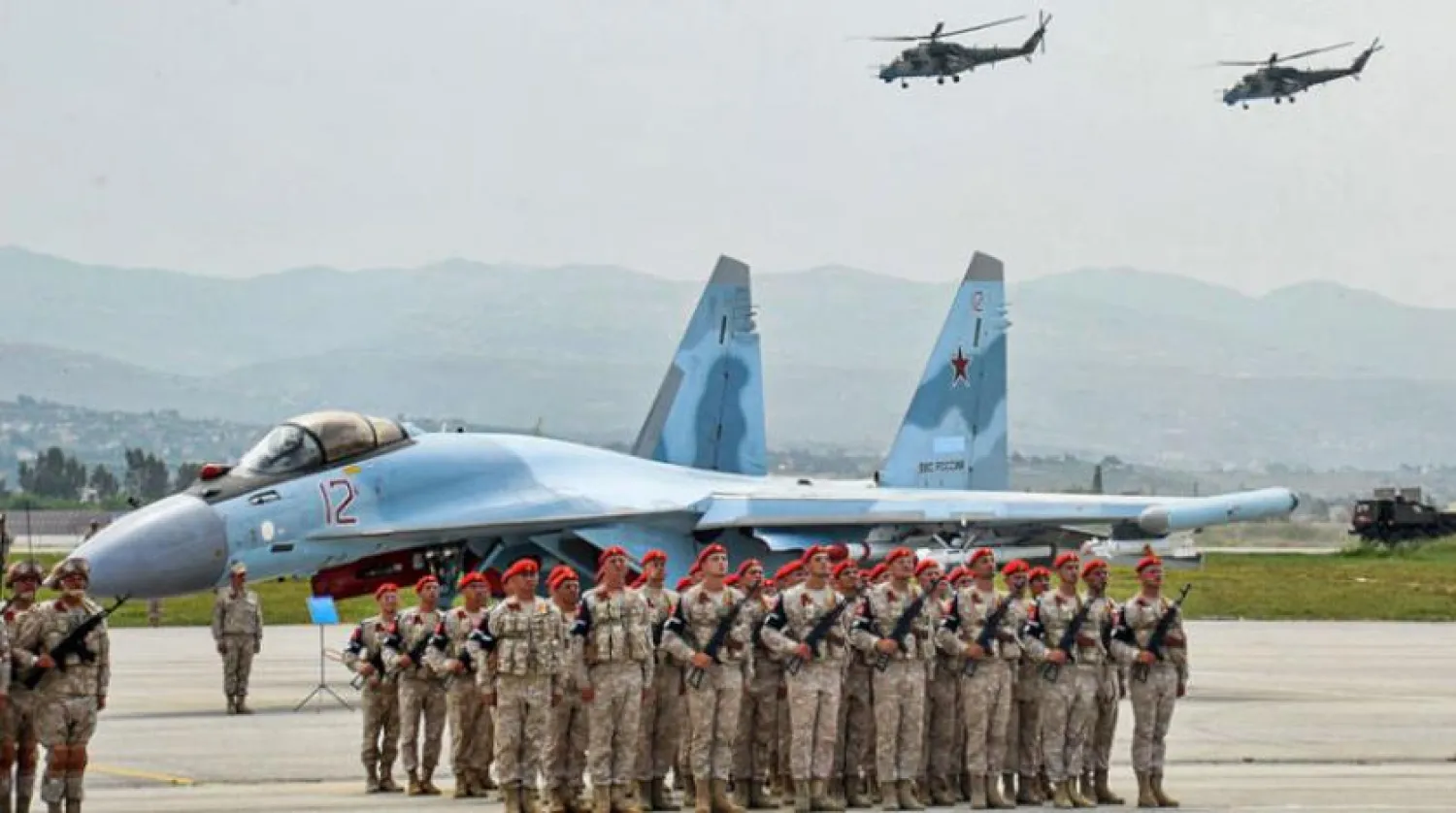The Russian army has expanded its military operations in the Syrian desert region, according to recent reports.
Moscow did not comment or disclose details about its raids in the region, however, the Syrian Observatory for Human Rights reported that more than 180 raids were carried out by Russian fighter jets within two days.
The war monitor stated that the raids are aimed at curbing activities by the ISIS group that enjoys wide presence in the desert (Badia).
Russian jets launched dozens of airstrikes in the vicinity of Jabal al-Bishri at the administrative borders between Raqqa and Deir Ezzor, and the frontlines in Hama’s eastern countryside, especially the surrounding areas of Athria, in addition to Homs’ eastern desert.
Thirteen ISIS terrorists were killed and several of their vehicles were destroyed.
The Observatory has documented the killing of at least 1,423 regime soldiers and loyalists from Syrian and non-Syrian nationalities, including at least two Russians, and 149 Iranian-backed militiamen of non-Syrian nationalities, since March 2019.
All were killed in ISIS attacks and bombings in the deserts of Deir Ezzor, Homs and al-Sweida.
The Observatory said four civilians working in gas fields and dozens of shepherds and other civilians, including children and women, were killed during the same period, while 950 ISIS members were killed.
A Russian military spokesman in Syria said the government and Russian forces have eliminated more than 300 terrorists since April 23.
He explained that the Syrian army, backed by the Russian troops, is continuing its reconnaissance and search operations in the Syrian desert.
According to the Russian military statement, 338 armed terrorists have been killed and 44 others arrested since April 23.
The army also destroyed six vehicles, 38 weapons and 45 hideouts, which has limited terrorist attacks against civilians and the Syrian army.
Meanwhile, Russian military data revealed that terrorist drone attacks on the Hmeimim airbase or the areas surrounding Idlib have dropped.
Vadim Ravin, the commander of the electronic warfare (EW) unit of the Russian Task Force in Syria, said that the troops continue to successfully perform their special tasks in Syria against cyber threats from “illegal armed formations.”
He believed that the effective use of jamming reduces the enemy’s chances of attacking Hmeimim airbase, which is home to Russian troops.
Similarly, the commander of the EW unit at Tartus base, Denis Kulikov said that the unit established a kind of “dome” to protect against drone attacks.
He added that the Russian forces used the Pole-21 and Ratnik-Kupol systems to suppress UAV control channels.









